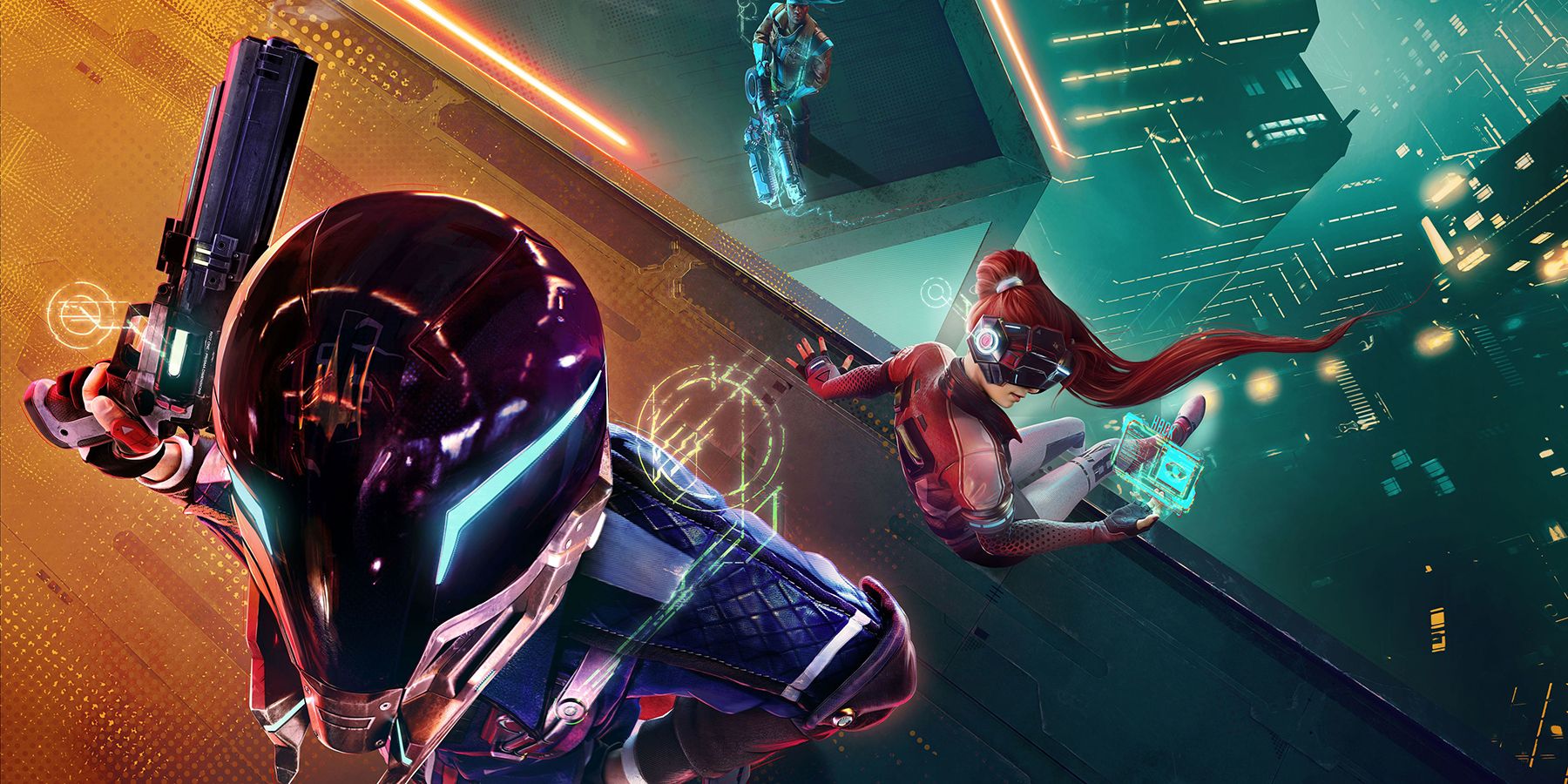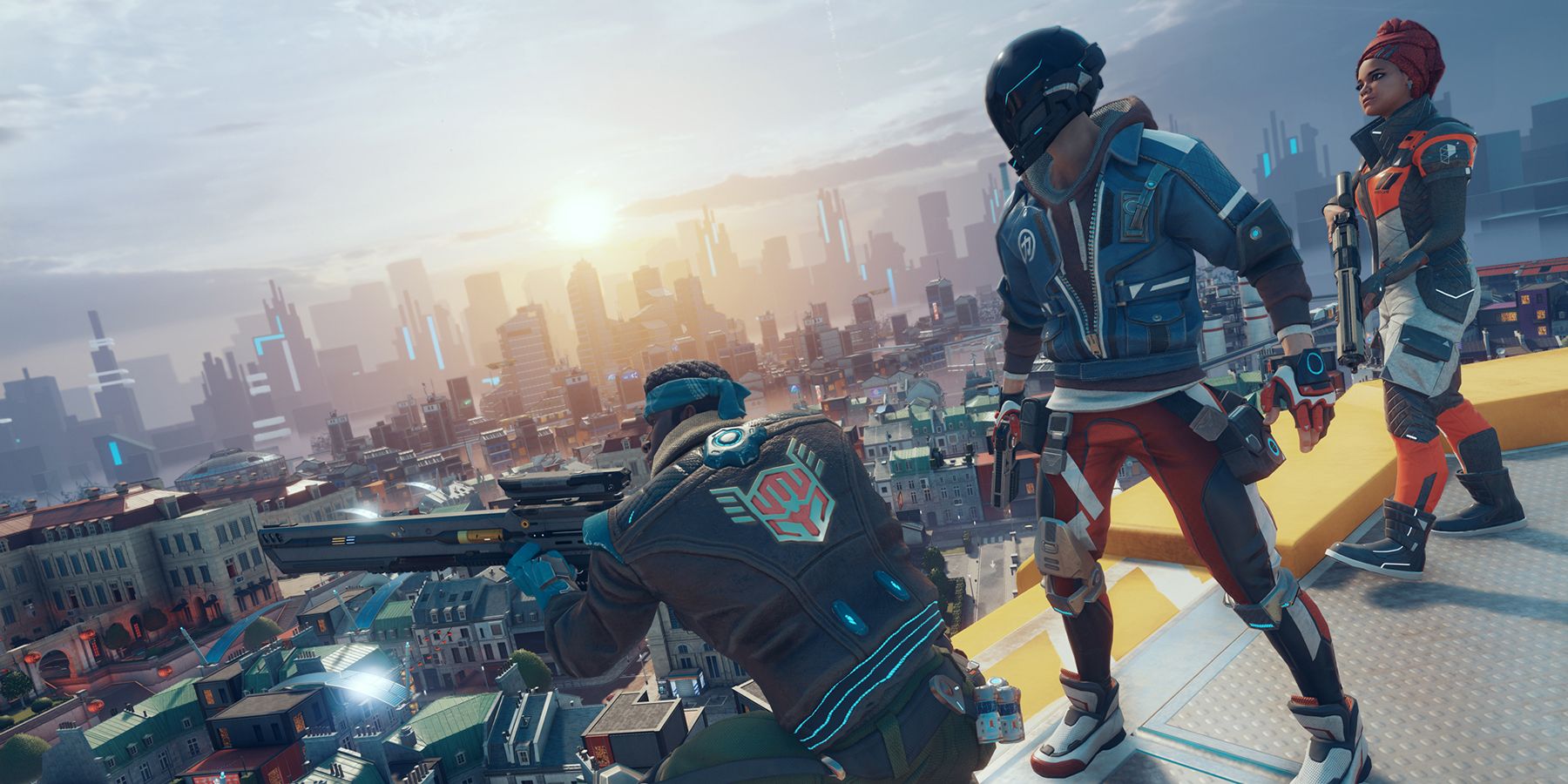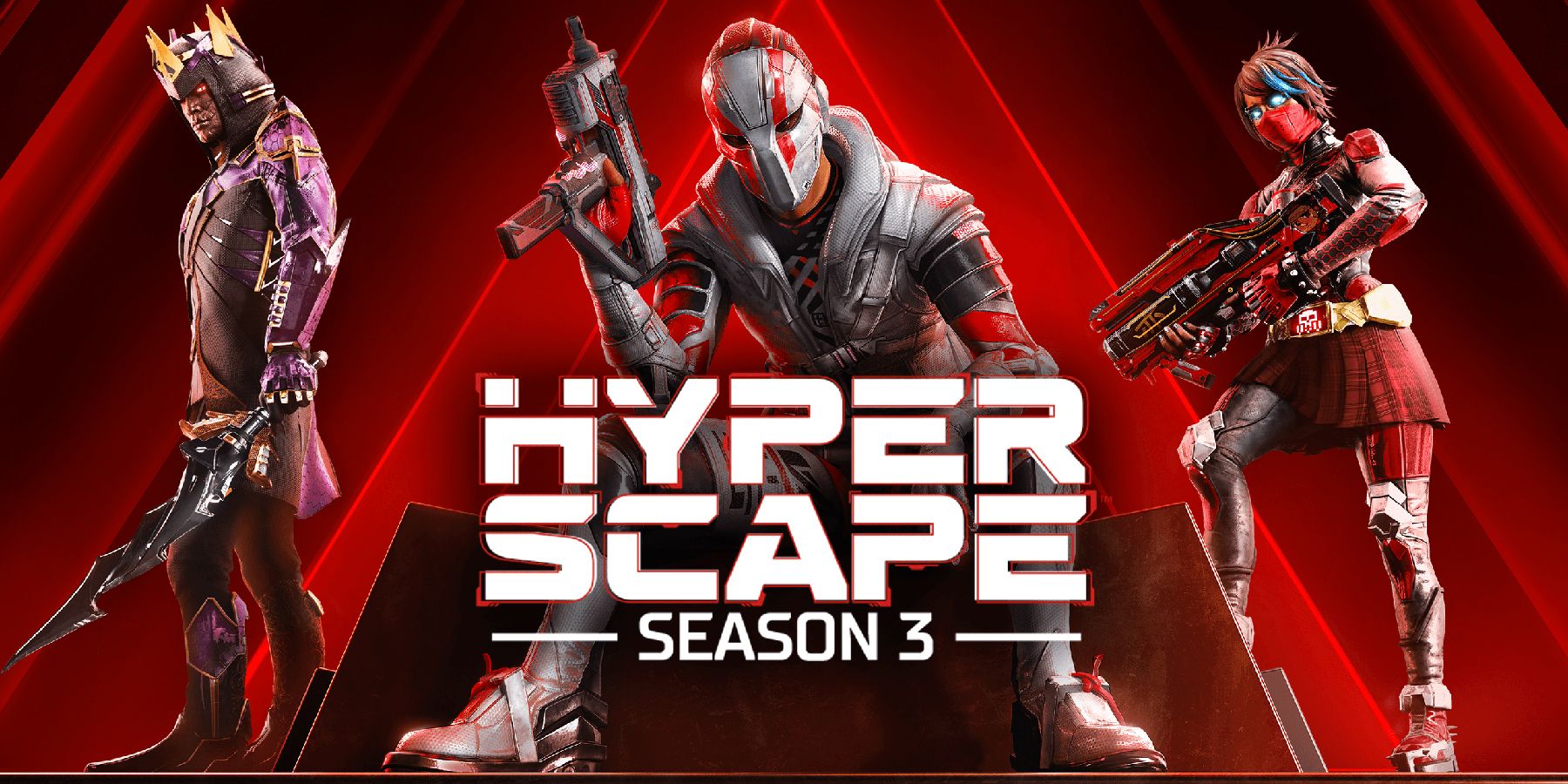While the subgenre's popularity has become a bit more subdued coming into 2022, used to be there would be a new battle royale game released as frequently as skins came to Fortnite. Whether it was an independent effort like Fall Guys: Ultimate Knockout and Spellbreak, or AAA studio efforts like Call of Duty: Warzone and Apex Legends, battle royale games have come in all shapes and sizes. Several AAA publishers have managed to find success based purely on adapting existing franchises into the popular shooter format, though not all have experienced the same success. Ubisoft's Hyper Scape has fallen into the latter category, and its shutdown plan emphasizes that.
To many, Hyper Scape was dead on arrival, even though the game genuinely showed a lot of promise in a crowded market. Whereas a lot of battle royale games tend to be relatively formulaic in design, thanks to the most popular battle royale games setting a foundational example, Hyper Scape attempted to experiment with the formula. Loot and abilities function on a comparatively simple upgrade system, while the map design did pursue some interesting ideas that not many other battle royale games have replicated. However, the game's unique ideas were all book-ended by numerous missteps that, in the end, only made Hyper Scape enjoyable for a short while.
Hyper Scape Had Potential, But Faltered Fast
Prior to its official release, Hyper Scape followed a similar release formula to Apex Legends and Valorant; attempting to build a playerbase at the ground floor of the Twitch community. Tons of streamers, big and small, were invited to the game's first technical test to show off Hyper Scape to all their viewers. Sponsored streams understandably brought in a ton of viewership to the game, with several thousand viewers tuning in to Hyper Scape's first private test in July 2020. Hyper Scape had a ton of promise moving into the game's launch, but viewership faltered on Hyper Scape's launch day in August, pulling a fraction of the technical test's Twitch viewership.
Even in comparison to Fall Guys, which launched a week earlier, the Wipeout-inspired platformer battle royale still had several thousand viewers post-launch. Granted Hyper Scape and Fall Guys are two very different flavors of battle royale games, but Hyper Scape just wasn't pulling the same number of viewers it once had. As it turned out, Ubisoft ended up being the last straw for oversaturating the battle royale market at the time. Games like Fortnite, Call of Duty: Warzone, Apex Legends, and even PUBG were still quite popular, both from a player and viewer perspective.
That being said, the game was not particularly underrated by any means. A lot of players genuinely enjoyed the concepts in Hyper Scape, but the execution of its experimental ideas was not perfect, and was just enough of a problem to push players away post-launch.
Hyper Scape Didn't Stand a Chance Next To Warzone, Fortnite
Ubisoft was betting big on Hyper Scape at launch; promising ambitious Twitch integration where viewers could vote on the next world-altering event in-game, as well featuring gameplay mechanics and design unlike any other battle royale game available. Eschewing the standard "closing ring" design in favor of collapsing sections of a city made Hyper Scape a distinctly urban battle royale that was fast-paced and strategic. The game's loot/weapons and equipment were varied enough that there were plenty of unique interactions possible in any given match at a time. Yet, the worst possible issues plagued Hyper Scape's sandbox, making it a tough game to recommend.
Many critics and players pointed out the deeply unbalanced loot pool throughout Hyper Scape's launch, an issue that was addressed in future patches, but left a bad impression on many. Weapons like the Hexfire were literal lasers with high accuracy at multiple ranges, meaning loot variety was meaningless when the meta is centered on few top-tier guns. Equipment and hacks like Invisibility essentially acted as get-out-of-jail-free cards in combat, further encouraging passive gameplay. Additionally, the King of the Hill-style Crown objective towards the end of each match encouraged camping as a legitimate strategy to win, making the final seconds of the endgame comparatively non-engaging.
In a market where established franchises and new IPs had already captured the battle royale lightning in a bottle, Hyper Scape ended up being a little too late. Paired with the gameplay issues at launch and the general disinterest of the Twitch community after its technical test, Ubisoft's attempt at battle royale had lost most of its momentum.
The already-popular battle royale games demanded a higher standard of quality from battle royale games that Hyper Scape just didn't have, even if the game improved over subsequent seasons. Even just a few years ago, the competition amongst other battle royale titles was fierce, meaning even a AAA publisher like Ubisoft could struggle to fit in next to Call of Duty: Warzone and Fortnite. Fans know that these games set the bar high, so jumping into a comparatively subpar battle royale with balance issues (compared to the already-solved metas of Warzone, Fortnite, Apex Legends, etc.), players just didn't find Hyper Scape as worth their time.
Hyper Scape servers will be shutting down on April 28, 2022.



